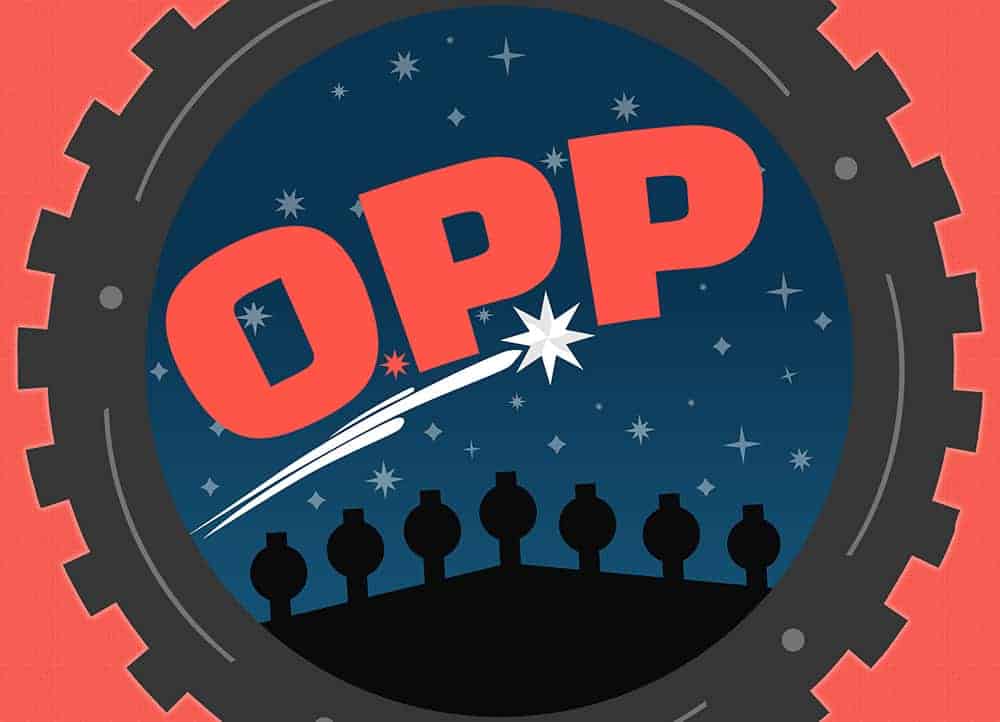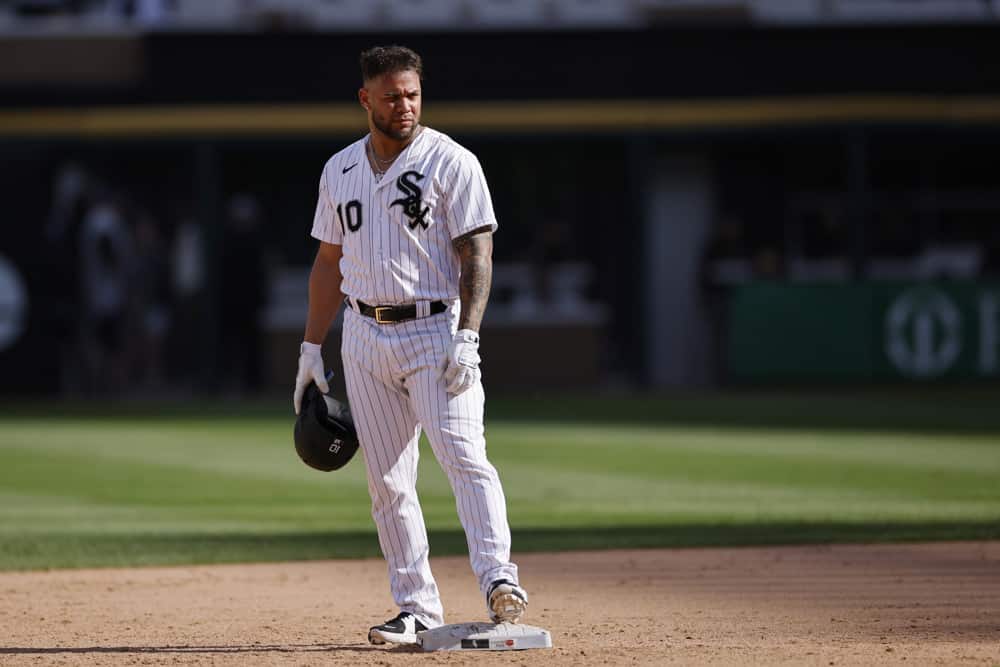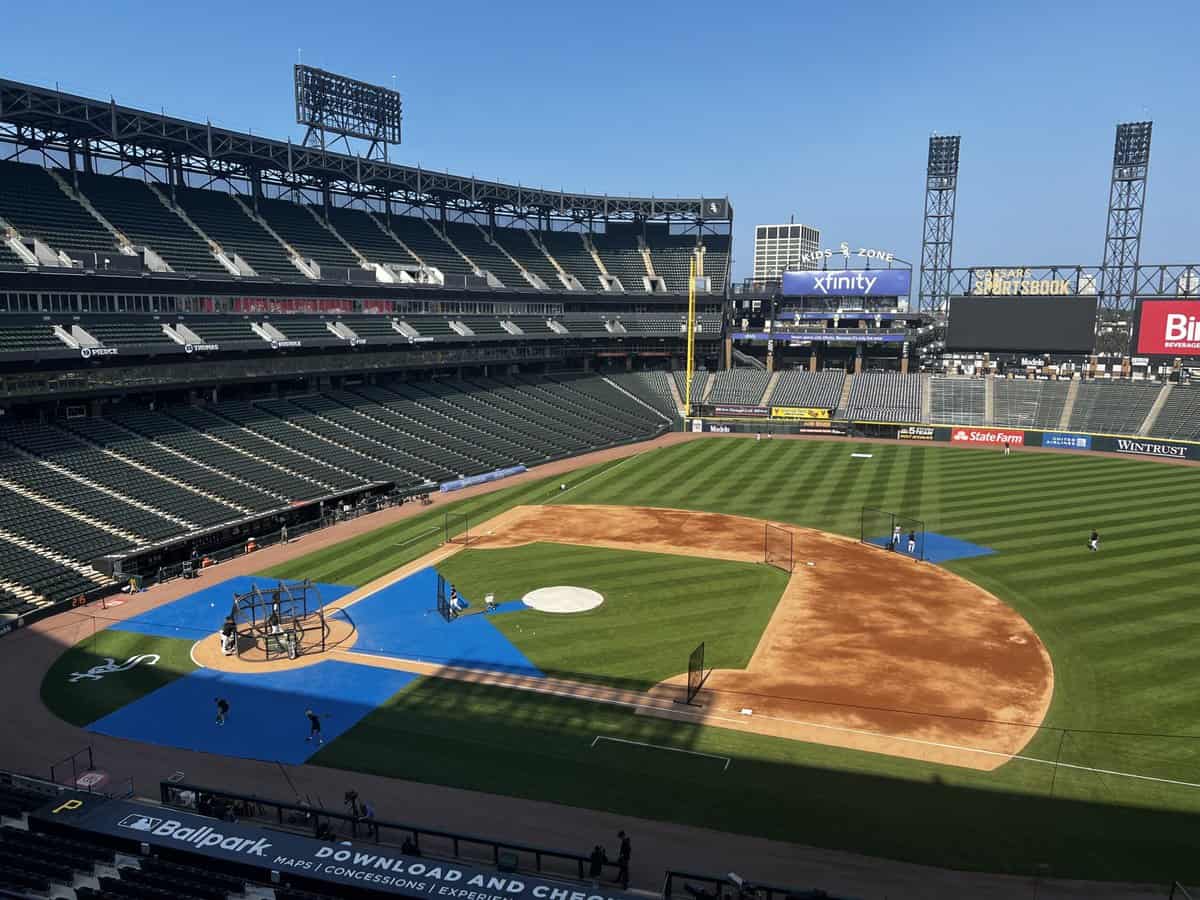Considering Carlos Rodón had already mentally accounted for Tommy John surgery before he even officially knew it might be necessary, Jon Heyman's report shouldn't catch anybody by surprise.
Heyman said on Monday that TJS has indeed been recommended for Rodón. Rodón is seeking a second opinion before proceeding, but he probably believes that it's truuuuuuuuuuuueeeeeee....
Along the lines of serious forearm woes, Nate Jones was moved to the 60-day injured list as part of the roster shuffling that opened a roster spot for Charlie Tilson. The White Sox are calling it a flexor pronator strain in his right forearm, which is an injury I still associate with Gavin Floyd, who battled it in 2012 before succumbing to Tommy John surgery in in 2013. Jones has already had his elbow opened up once, and it may not be in either party's interest to do it again.
On Monday, I read a couple of separate pieces on the state of baseball that resonated to me as related, mainly because they both show how fan interest has taken a back seat to an ecosystem that doesn't need them right now, but maybe can't be expected to last for all that long.
Over at Baseball Prospectus, Craig Goldstein railed against the idea of "financial flexibility" as an end, rather than a temporary state. It was most brazenly touted by Alex Anthopoulos and the Braves, but Rick Hahn and Kenny Williams pulled a similar ploy, as this paragraph might remind you:
Teams will say that their young, cheap players — which they are capitalizing on now — will eventually be expensive, and that is part of why they need to maintain their current flexibility, ignoring that contracts drop off of payroll most every year.
Then they’ll tell you that that undermarket contract they just signed a burgeoning superstar to is how they’ve chosen to invest the money they haven’t been spending this whole time, ignoring that those deals are the kind that allow you to spend more liberally elsewhere to build a championship team. If you’re not spending that money elsewhere then all you’ve done is build a cheaper team, which doesn’t imply a better team. Teams are using this phrase as a way to recalibrate fan expectations in regards to the budget, focusing their energy on the “positive” aspects of the opportunities that are afforded by unspent money, ignoring all the while that the point of achieving that flexibility is to ultimately spend it to enhance the on-field product and win a championship.
Indeed. Williams and Hahn pointed to potential contract/arbitration numbers for Eloy Jiménez and Yoan Moncada as bogeymen for extending themselves for Manny Machado, even though there were other ways to cap costs, as Jiménez eventually showed. They just didn't want to sacrifice their financial flexibility, even though a string of subsequent contract extensions have made it harder to exercise said flexibility. Then again, if you never really intend to use it, then it doesn't really matter.
Some writers aid and abet this approach with really poor presentation ...
... but I think fans, at least locally, detect BS, even if there are limited ways to act against it.
Speaking of which, a Detroit Tigers beat writer decided to go to a game like a fan on an off day, and was surprised with what he found:
What I found made me wonder not just about the future of baseball, but of live, in-person spectator sports in general.
After nearly three hours in the seats, I began to think we in the media were asking the wrong questions about the dwindling attendance that has been a consistent trend across baseball and other sports. Instead of bemoaning the shrinking crowds, perhaps we should marvel that there are still thousands and thousands of people willing to pay a premium price and endure all sorts of inconveniences to come to games.
The thought about paying a premium had crossed my mind while watching the White Sox play Boston on Sunday in front of a capacity crowd. The White Sox drew more people than usual because of built-in advantages -- most people don't work on Sunday and the Red Sox have a national fan base -- but they drew 36,000 because of a concerted marketing effort stressing affordability. Family Sundays feature lower ticket prices, half-price parking and autograph sessions for kids. That's a lot of added value reducing the mental barrier to buying a ticket, and fans respond.
Granted, you can get in for similarly cheap during the week, whether via SeatGeek (promo code SOXMACHINE) or the Sox' own ballpark pass, although you give them a lot of data to mine for the latter privilege. But it's strange when face values remain high even in the face of sagging demand due to a poor product. And compared to something like the zoo -- which the writer went to the day after -- it's odd that expectations for attendance persist when the market remains committed to a certain cost per fan. You can spend less money for a comparable amount of entertainment, and you typically don't leave complaining about the giraffe's off night or how much the pandas suck.
It does seem like more baseball writers are treating attendance as a problematic result of business conditions, or at least a leaguewide trend instead of the failure of isolated fan bases. Maybe it's because the teams that spent (Philadelphia and San Diego) are doing so much better at the gate year over year than the teams that prized their flexiblity.
However they've come to realize it, it’s part of a greater reckoning where the normal forces are muted by an influx of money and worth that’s immune from day-to-day demand, and when most teams make a profit before anybody steps in the park or turns on the TV, the league as a whole ends up flirting with how little it needs fans to care.





